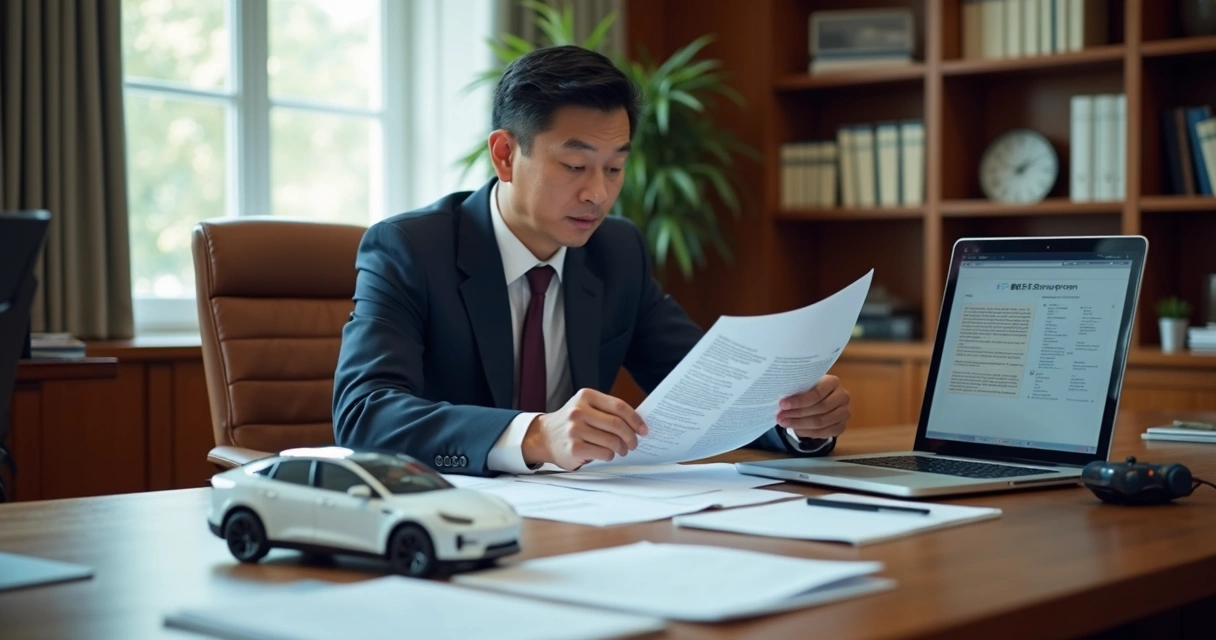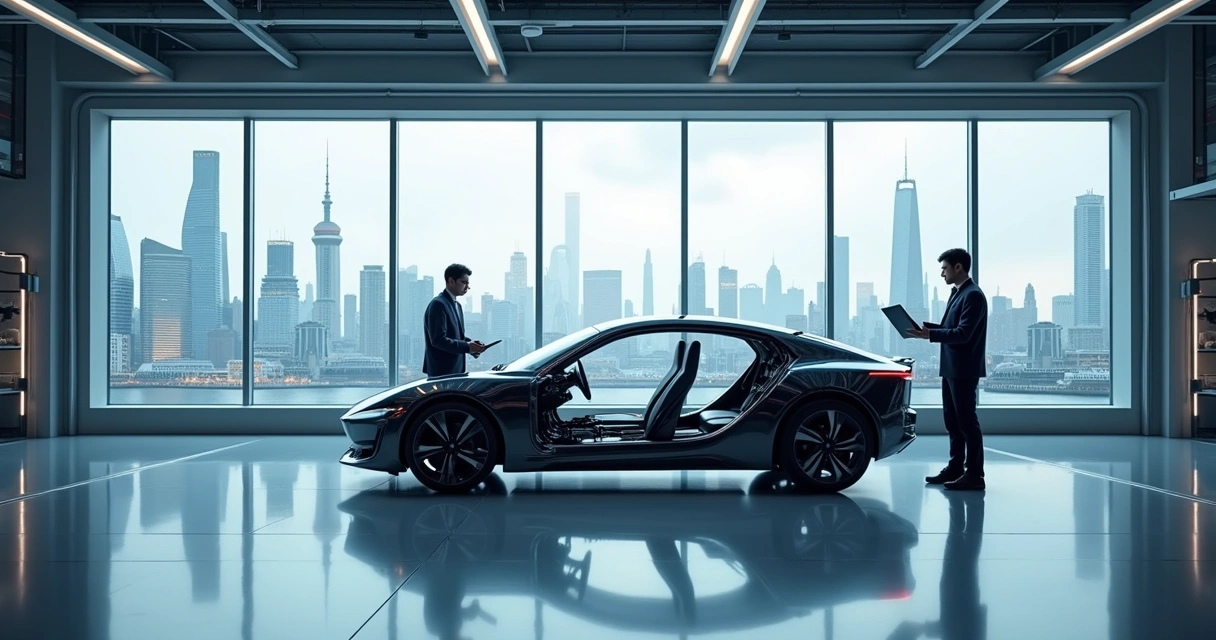As someone who’s spent years untangling the threads of international workforce strategy, I’ve seen firsthand just how tough the European expansion path can seem, especially for Chinese electric vehicle (EV) manufacturers. The world’s hunger for sustainable transport is pushing borders open, but employment law is one border that always stands tall. Many founders and HR leaders email me with one core question: Is there a way to legally hire in Europe without forming a subsidiary? Or, to put it more simply, must every Chinese EV firm open a European company just to get boots on the ground?
This article draws on what I have learned guiding business clients through this challenge. I’ll cut through the noise, share why this question matters now, and offer clear perspectives on choices like the Employer of Record (EOR) model vs. setting up a local entity. Being part of a project like EWS Limited, which links business ambitions with practical workforce solutions worldwide, gives me a front row seat to these complexities—so think of this as a tour, not a lecture.
If you’re reading this from an office in Shanghai, Shenzhen, or Beijing, this drive may feel familiar. European consumers are shifting towards electric mobility rapidly. Governments throughout the European Union are offering rich incentives for EV adoption, and not a week goes by without new demand in countries like Germany, France, Sweden, and the Netherlands. Everyone in the sector is talking about it.
Think small, move fast—that’s the startup way, and EV is no exception.
But can it be done above board? Can a company based solely in China really hire workers in the Netherlands, Germany, Sweden, or anywhere in Europe without opening a local company first?
European employment law is sometimes painted as a wall of rules, but in my experience, it’s actually more like a tricky labyrinth. Whether you want to hire a sales manager in France or an R&D specialist in Denmark, the main legal question is: Does the act of engaging a European-based worker require you to open a subsidiary, or is there another path?
There are a few central points to know:
In my work with EWS Limited, I’ve seen that while direct hiring without a local presence is technically non-compliant in most European markets, there’s a compliant ‘middle way’ that is well established: the Employer of Record model.
The term Employer of Record (EOR) sounds like corporate jargon, but the concept is quite simple.
You drive the business. An EOR does the local hiring.
Under the EOR model, a business (like a Chinese EV manufacturer) selects local talent in Europe. But instead of employing the workers directly, the EOR formally employs them, taking care of all payroll, taxes, employment contracts, and statutory benefits. The workers remain under the full daily direction of the Chinese EV company, but their official employment relationship is with the EOR in the local country.
It’s like a bridge: The EOR stands as the legal employer for local compliance, while the business keeps operational control.
According to a recent GlobeNewswire report, the EOR market worldwide is expected to reach $3,745.43 billion by 2030, expanding at a steady compound annual growth rate. Growth in Europe, especially, is due to compliance-driven needs—precisely the challenges Chinese EV manufacturers face.
Global Growth Insights notes that Europe is seeing significant growth thanks to compliance needs and the rise in cross-border M&A activity, making EOR solutions more attractive for businesses expanding internationally (Global Growth Insights).
Why? Because the EOR route lets you:
At some point, every expanding EV firm—whether in Europe or elsewhere—faces the classic corporate fork in the road: keep using an EOR, or open a branch or subsidiary?
 From my experience, setting up a European subsidiary takes time and, frankly, patience. Each country has its procedures, but there are shared themes:
From my experience, setting up a European subsidiary takes time and, frankly, patience. Each country has its procedures, but there are shared themes:
It can take a few weeks or several months—sometimes even longer, especially if you’re pioneering EV tech that attracts extra regulatory scrutiny. Costs can escalate quickly, and early-stage teams sometimes find themselves bogged down in details, far from the nimble hiring they first pictured.
In the search for a quick fix, I often get asked: “What if we just pay local talent as contractors, bypassing all the entity and EOR hassles?”
My reply is always measured: This path is rarely compliant or safe in Europe. Most European countries have tightened their rules over the years to crack down on misclassified workers. A sales engineer or technician that is supervised, scheduled, or depends economically on you is likely to be seen as an employee under local law, no matter what your contract states. Fines can be high, and public backlash even higher—for a proud EV brand, it’s not worth the risk.
Let me share a practical story. I worked with a Chinese EV firm wanting to hire service engineers and marketing specialists in Denmark and Sweden. Opening two companies just for five initial hires felt excessive. Instead, through an EOR in Denmark and EOR in Sweden, they got workers on payroll, paid local taxes, and offered statutory benefits in just two weeks—legal, fast, and accepted by both governments and the employees themselves.
Where’s the catch? Well, EOR is not magic. If you have long-term, large-scale plans, you may eventually outgrow it. The EOR solution is for agility—getting to market and building local presence before you commit to forming a full subsidiary.
These countries have their own quirks. I’ve seen Chinese EV manufacturers run successful teams in Germany using a local EOR—often as a bridge before eventually forming a German GmbH. The same goes for the Netherlands, where local EOR solutions make it easy to test sales before forming a BV company. France, meanwhile, is famous for its strict labor codes, yet through a French EOR, you can hire and manage French talent lawfully without a subsidiary.
 Comparing EOR to subsidiary: the pros and cons
Comparing EOR to subsidiary: the pros and consIn my work with dozens of international launches, I often weigh the following for clients:
Don’t think of EOR as a forever decision. Think of it as a launchpad.
Readers ask me how projects like EWS Limited play into this story. EWS Limited focuses precisely on these scenarios, walking companies through the steps to stay on the right side of European law, whether that’s payroll outsourcing, help with global mobility, or serving as an employer of record across 100+ countries.
I’ve found our model suits Chinese EV startups and scale-ups well: there’s no need for a physical office unless you want one; everything from hiring to offboarding is handled; you retain all operational control. For mid-sized or established manufacturers, it’s a practical transition path—you move to a subsidiary when the time is right, not before.
On top of that, we focus on local compliance, especially where EU regulations can feel overwhelming. Payroll in Sweden is not the same as payroll in Germany—just ask anyone who’s managed both. Projects like EWS stay on top of those details to keep things running smoothly.
From experience, most Chinese EV companies start by looking at their goals for the first year or two. Are you planning to hire just a sales team, or do you need service techs, engineers, or back-office staff in five countries?
For more detailed insights about the EOR process in different countries, you can check the country-specific guidance available for Germany, France, Denmark, Sweden, and the Netherlands.
No discussion would be honest without mention of risks. I urge every Chinese EV manager to consider a few things before moving forward.
 For companies unsure about the compliance picture, partnering with an expert helps avoid surprises. When in doubt, trust but verify: it’s not just about hiring fast, it’s about hiring right.
For companies unsure about the compliance picture, partnering with an expert helps avoid surprises. When in doubt, trust but verify: it’s not just about hiring fast, it’s about hiring right.
The past few years have seen a huge rise in companies (large and small) using EOR models to enter foreign markets. Right now, EOR is riding a strong wave given international talent shortages, new regulations, and companies paddling fast to reach new buyers.
Yet, I wouldn’t say EOR is the future for every employee forever. Once a company reaches a tipping point—say, a full European operations or manufacturing base—it almost always makes sense to set up a subsidiary. Until then, EOR offers flexibility for small teams and early phase expansion, all while standing on solid legal ground.
 Conclusion
ConclusionSo, can a Chinese EV manufacturer really hire in Europe—Germany, France, Denmark, Sweden, the Netherlands—without registering a new subsidiary? Yes, you can. The Employer of Record model is established, widely used, and respected as a compliant route, especially for sales, technical, and support professionals.
I’ve watched Chinese companies quickly enter European markets, stay compliant, test ideas, and scale with confidence, thanks to this approach. Yes, it pays to ask the right questions early. If you want a trusted partner who can help link your global ambitions with local hiring realities, the EWS Limited team has the experience, legal background, and country-specific support to move you forward safely.
Legal hiring is the first step to long-term market success.
Ready to remove barriers and build your European team? Get in touch with EWS Limited today and let’s map out the right, risk-free route for your journey.
A subsidiary company in Europe is a legally separate business entity formed in a European country, owned or controlled by a parent company (in this case, a Chinese EV manufacturer). It has its own registration, tax ID, bank accounts, and meets all local requirements for hiring staff, holding assets, and entering contracts. It gives full operational autonomy in the market, but brings more complexity and cost compared to other models like EOR.
Chinese EV firms can hire legally in Europe either by establishing a local company (subsidiary) or by using an Employer of Record (EOR) service. The EOR acts as the formal employer on paper, ensuring compliance with local payroll, tax, and labor laws, while the Chinese company directs the day-to-day work. This approach is widely accepted, especially for pilot teams, sales, or technical specialists.
It’s not always necessary to open a subsidiary right away. For small or early-stage teams, using an EOR is often a faster, safer, and less expensive option. Many EV manufactures adopt a phased approach: starting with EOR to test the market, then setting up a local entity once business scales up. However, when building a large operation or needing full local contracts (like owning real estate or big government buys), forming a subsidiary becomes more practical.
The main alternative is hiring through an Employer of Record (EOR), which allows you to employ local talent compliantly without direct local incorporation. Other temporary solutions may include engaging independent contractors, but this carries big compliance risks in Europe and is rarely advised for roles under your direct control. EOR, on the other hand, covers payroll, contracts, and compliance, providing a risk-free path for teams of any size.
Costs can vary, but with an EOR, Chinese EV manufacturers pay a set monthly service fee per employee on top of salary and taxes. This often ranges from 10% to 20% of gross payroll, depending on country, size, and services needed. It is almost always cheaper upfront than forming a company, which involves legal, accounting, registration, and ongoing administrative costs that add up quickly. Over time, companies may find a subsidiary makes sense for a larger footprint, but EOR is clearly the low-risk, low-barrier approach for starting out.
How Recruiters Use EOR to Handle Rapid Global Onboarding
Top 5 EOR Red Flags to Avoid in 2026
EOR vs Entity Setup in 2026: What Startups Need to Know
10 Things You Didn’t Know Your EOR Could Do
When to Use a Payroll Provider vs Full EOR in Global Hiring
January Compliance Watch: What’s Changing in APAC Labor Laws
Hiring in Turkey in 2026: Costs, Contracts, and EOR Options
Contractor or Employee? Compliance Risks to Watch in 2026
What’s Changing in European Payroll Compliance in 2026?
How to Use EOR to Win More Government or Public Sector RFPs
Hiring in Colombia: Fast-Growing Talent Pool, Low Total Cost
Remote Tech Jobs Surge 33% in Ireland: Skills You Need Now
Remote Work in APAC: 7 Data-Driven Trends for 2026 Expansion
Remote Payroll Headaches: 7 Mistakes HR Teams Make
Freelancer vs EOR in 2026: Cost, Risk, and Speed Compared
How Employee Experience Drives Retention and Business Growth
How HR Can Reduce Burnout Amid AI, Budget Cuts, and Change
Employment Contracts: What HR and Global Managers Must Know
PEO Explained: How It Simplifies Global Workforce Management
Global Mobility: A Complete Guide for HR and Global Managers
Remote Workforce: A Complete Guide to Managing Global Teams
Workforce Planning: A Step-by-Step Guide to Strategic Hiring
How Recruiters Use EOR to Increase Revenue Per Client
The Secret to Winning Global RFPs? A Strong EOR Partner
Top 7 Hiring Trends Shaping Global Teams in 2026
Hiring in Türkiye: Key Labor Laws and Employer Risks in 2026
GCC Hiring Compliance Update: What’s Changing in 2026
How to Hire in Turkey in 2026: A Strategic EOR Guide
Why modern recruitment agencies outsource compliance to EOR partners
How adding an EOR partner helps agencies win more RFPs
EOR Opportunities in Poland: Why It’s Europe’s Talent Powerhouse
Cross-Border Hiring Trends for 2026: Insights for Global Recruiters
How to Build a Scalable Payroll Strategy Across MENA
Contractor vs Employee in Germany: What’s the Risk in 2026?
“Place globally, bill locally” — the new recruiter cheat code
Top 5 Compliance Mistakes When Expanding to the UAE
Why EOR is Key to Winning Public Sector Tenders in Europe
Growth formula for agencies using EOR to expand key accounts
How EOR helps recruiters stay ahead of fast-changing GCC compliance
Employer of Record in Mandarin: What is 境外雇主服务?
How to Use an EOR for Temporary Projects (中国公司如何为短期海外项目使用EOR服务)
Why “Go Global” Must Include Compliance (“走出去”战略中的合规盲点)
中资企业如何选择欧洲EOR供应商?(How to Choose the Right EOR Partner in Europe)
与当地政府打交道:中国公司需要了解的合规礼仪 (Cultural Compliance for Chinese Firms)
中国公司海外人力结构案例分析:制造业、科技与能源 (HR Case Studies: Chinese Firms Abroad)
How Guanxi Influences Hiring in the Middle East (关系在中东招聘中的作用)
Top 5 Risks When Hiring in the Gulf (中国企业在海湾地区招聘的五大风险)
Managing Compliance in Multi-country Projects (中国企业多国项目的人力合规管理)
The $100K Visa Shock: Why Global Hiring Just Replaced the H-1B
How to Set Up Payroll For Hpc And Ai Teams
Contracting Machine Learning Talent Abroad
Everything on Hiring Foreign Phds In German Tech Labs
Cross-Border Ip Protection In R&D Teams
How To Classify Freelancers In Tech Innovation
How Eor Helps Tech Firms Legally Hire In Germany
Dual Contract Structure For International Researchers
Data Protection Obligations For Remote Tech Staff
Germany Research Visa Vs Skilled Worker Visa
Everything on Nis2 Directive Compliance For Eu Tech Workers
Global Mobility For Deep Tech Startups In Germany
Payroll For EU Embedded Systems Developers
Relocation Support For Semiconductor Experts on EU
The Absolute Way to Hire Ai Engineers In Germany
How to Manage Benefits For German Tech Hires
Germany’S Blue Card Process For Engineers
Everything on Germany R&D Employment Compliance
Remote Hiring Of Cybersecurity Analysts In Eu
Visa Pathways For Quantum Computing Researchers
Onboarding Robotics Specialists Across EU Borders
Workforce Planning In Ai-Driven Logistics And Infrastructure
Visa Processing For High-Tech Infrastructure Staff
Managing Global Mobility In Sustainable City Projects
Cross-Border Team Management In Saudi Data Centers
Hiring Skilled Labor For Green Hydrogen Facilities
Digital Twin Technology Hiring Trends In Saudi Construction
Employer Obligations In Public-Private Energy Initiatives
Navigating Local Labor Laws For Solar Energy Teams
Talent Acquisition In The Saudi Mining Sector
Eor Solutions For Ai Engineers In Mega Projects
Regulatory Challenges In Hiring For Giga Construction Projects
Contractor Compliance In Smart City Developments
Classification Of Engineering Consultants In Vision 2030 Projects
How To Manage Workforce For Neom-Based Tech Projects
Eor For Multinational Mining Firms Operating In Saudi Arabia
Employer Of Record For Wind Energy Projects In The Gulf
Relocation Logistics For International Clean Energy Experts
Hiring Strategies For Large-Scale Construction Projects In Ksa
How To Onboard Digital Infrastructure Experts In Saudi Arabia
Payroll Setup For Renewable Energy Workers In Ksa
Strategic Relocation To Riyadh Or Doha: A Guide for Global Employers
Work Visa Processing In Qatar And Saudi Arabia
Qatar Nationalization Policy And Foreign Firms
Cost Of Setting Up A Business In Qatar: A Guide for Global Employers
Saudi Labor Court And Dispute Handling for Global Employers
Cross-Border Payroll For Ksa And Qatar Teams
End Of Service Benefits Saudi Arabia: A Guide for Global Employers
How To Manage Expat Benefits In Qatar for Global Employers
Expanding Into New Markets: Vendor Risks You Should Flag
A Guide to Cross-Border Equity Vesting for Tech Startups
Employer Branding for Multinational Teams: What Works Now
What Global C-Level Leaders Miss About Digital Nomad Visas
Succession Planning for Distributed Teams: A Practical Guide
Relocation Budgeting For Global Tech Firms
Latam Hiring Strategy: What Global Companies Should Know
Risk Of Permanent Establishment Explained
Managing Intellectual Property In Remote Work
Benefits Benchmarking Globally for Global Companies
How to Benchmark Compensation Across 100+ Countries in 2025
Checklist: Preparing HRIS for Fast International Scalability
Biometric Data in Global Payroll: Legal Boundaries Explained
8 Regulatory Updates Impacting Global HR in 2025
What are Hidden Costs of In-House Payroll?
Why Companies are Thinking Differently About Relocation
Is Your Global Mobility Program Outgrowing Spreadsheets?
Remote Work Visas: A Growing Trend in Global Mobility
Hiring in Europe Post-Brexit: What You Need to Know
Tips for Managing Multi-Time Zone Teams Successfully
Relocation Packages: What Top Talent Expects in 2025
Banking and Payroll Challenges in Saudi Arabia Markets
The Legal Risks of Misclassifying Global Workers
Why Scalability Should Drive Your Global HR Strategy
How EWS Streamlines Global Mobility for Tech Talent
Lithuania – Employer of Record
Kosovo – Employer of Record
Finland – Employer of Record
Namibia – Employer of Record
Nepal – Employer of Record
Spain – Employer of Record
Latvia – Employer of Record
Ireland – Employer of Record
Cyprus – Employer of Record
Czech Republic – Employer of Record
Italy – Employer of Record
Indonesia – Employer of Record
South Africa – Employer of Record
Tunisia – Employer of Record
Bosnia – Employer of Record
Moldova – Employer of Record
Five Tips For Improving Employee Engagement
Netherlands – Employer of Record
Germany – Employer of Record
France – Employer of Record
Portugal – Employer of Record
Bulgaria – Employer of Record
Austria – Employer of Record
Hungary – Employer of Record
Slovenia – Employer of Record
INCLUSIVITY IN THE TEAM MAKES EVERYONE WIN
Thailand – Employer of Record
Sri Lanka – Employer of Record
The Significance of an Employer of Record
Greece – Employer of Record
Mexico – Employer of Record
4 Reasons to Outsource Your Payroll
Five Recruitment Trends 2023
Malaysia – Employer of Record
Skill-Based Hiring and Benefits
Malta – Employer of Record
How To Practice Inclusive Recruitment
Israel – Employer of Record
Macedonia – Employer of Record
Jordan – Employer of Record
Macau – Employer of Record
Peru – Employer of Record
The Importance of Employer Branding
Bahrain – Employer of Record
South Korea – Employer of Record
Recruiting during a recession
Philippines – Employer of Record
USA – Employer of Record
Japan – Employer of Record
How To Setup A Business in 2023
Norway – Employer of Record
Managing Overseas Projects In 2023
Reason Of Expanding Your Workforce Globally
Croatia – Employer of Record
Colombia – Employer of Record
5 Ways To Speed Up Your Hiring Process
Egypt – Employer of Record
3 Ways To Streamline An Interview Process
Russia – Employer of Record
Saudi Arabia – Employer of Record
Hong Kong – Employer of Record
An Effective Hybrid Work Model
Turkey – Employer of Record
UAE – Employer of Record
Pakistan – Employer of Record
7 Things to Consider Before Accepting a Job
Kazakhstan – Employer of Record
3 Reasons to Encourage Employees to Generate Employer Brand Content
Denmark – Employer of Record
Sweden – Employer of Record
Bangladesh – Employer of Record
Kuwait – Employer of Record
How To Hire In The Age Of Hybrid Working
Australia – Employer of Record
Oman – Employer of Record
Qatar – Employer of Record
Ukraine – Employer of Record
Diversity – A Vital Hiring Strategy
Owning Every Moment of Your Hiring Experience
Serbia – Employer of Record
Maldives – Employer of Record
India – Employer of Record
Argentina – Employer of Record
Uzbekistan – Employer of Record
Belarus – Employer of Record
Brazil – Employer of Record
Chile – Employer of Record
Armenia – Employer of Record
3 Steps To Company Formation In The UK & Abroad
Romania – Employer of Record
Canada – Employer of Record
Morocco – Employer of Record